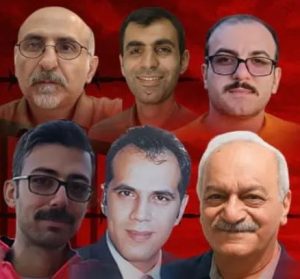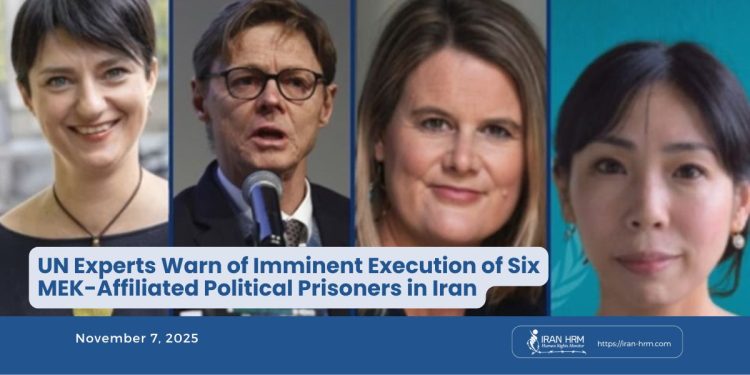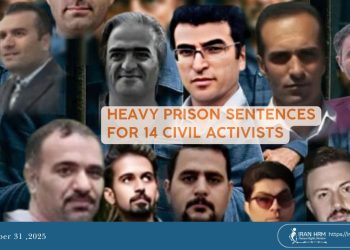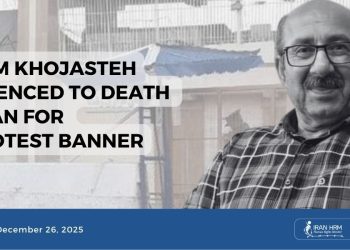Geneva – November 6, 2025
Five UN Special Rapporteurs have expressed grave concern over the imminent execution of six political prisoners affiliated with the People’s Mojahedin Organization of Iran (PMOI/MEK). The experts called on the ruling regime in Iran to immediately halt the executions and ensure compliance with international human rights standards.
Joint Letter by Five UN Special Rapporteurs
The communication, signed by Mai Sato (Special Rapporteur on the situation of human rights in Iran), Gabriella Citroni (Working Group on Enforced or Involuntary Disappearances), Morris Tidball-Binz (Special Rapporteur on extrajudicial, summary or arbitrary executions), Nazila Ghanea (Special Rapporteur on freedom of religion or belief), and Alice Jill Edwards (Special Rapporteur on torture and other cruel, inhuman or degrading treatment), condemns the widespread use of torture and unfair trials in Iran’s judicial system.
In a recent communication with the Government of the Islamic Republic of Iran, I raised grave concern about the cases of Babak Alipour, Vahid Bani Amerian, Akbar (Shahrokh) Daneshvarkar, Pouya Ghobadi, Abolhassan Montazer and Seyyed Mohammad Taghavi Sangdehi, who reportedly face…
— Mai Sato (@drmaisato) November 5, 2025
Names and Background of the Prisoners
The six political prisoners are identified as Babak Alipour, Vahid Bani-Amerian, Akbar (Shahrokh) Daneshvarkar, Pouya Ghobadi, Abolhassan Montazer, and Seyed Mohammad Taghavi-Sangdehi. They were arrested between December 22, 2023 and February 23, 2024 in Tehran and near the Chaldoran border without warrants. The UN experts report that excessive force was used during the arrests and that all six were subjected to physical and psychological torture, including beatings, threats of summary execution, and prolonged solitary confinement.
 Torture and Mistreatment in Custody
Torture and Mistreatment in Custody
Babak Alipour was reportedly beaten from behind and threatened with execution. Vahid Bani-Amerian and Abolhassan Montazer were beaten together; Bani-Amerian was shot, and Montazer’s chest stitches from prior heart surgery were torn open. Akbar Daneshvarkar was assaulted at home and threatened with the arrest of his wife and child. Pouya Ghobadi and Seyed Mohammad Taghavi-Sangdehi were detained at the Chaldoran border and kept in unheated cells during winter. The experts state that such treatment constitutes cruel and inhuman punishment under international law.
Unfair Trials and Death Sentences
On October 6, 2024, the six prisoners were jointly tried at Branch 26 of the Tehran Revolutionary Court on charges of baghi (armed rebellion). Hearings lasted only a few minutes, and at least three defendants met their lawyers for the first time on the day of trial. On November 30, 2024, all six were sentenced to death. In addition, Bani-Amerian received a ten-year prison term, Daneshvarkar twenty years, and Montazer ten years. The charges stem solely from alleged links to the PMOI, with no evidence of violence or murder presented.
Transfer to Qezel Hesar and Risk of Execution
In June 2025, following an Israeli airstrike on Evin Prison, the six prisoners were transferred to the Greater Tehran Penitentiary (Fashafouyeh). On August 8, 2025, five of them—Daneshvarkar, Taghavi-Sangdehi, Ghobadi, Bani-Amerian, and Alipour—were moved to Qezel Hesar Prison in Alborz Province, one of Iran’s main execution sites. Abolhassan Montazer was later transferred under the pretext of medical treatment, raising fears that the executions may be imminent.
Mai Sato’s Official Statement
In a separate statement, Mai Sato condemned the escalating wave of executions in Iran, declaring: “The death penalty for the charge of baghi is illegal under the International Covenant on Civil and Political Rights (ICCPR), which limits capital punishment to the most serious crimes involving intentional killing.” She added: “Execution is neither justice nor deterrence; it is a tool of fear and the continuation of a cycle of violence. I urge the Iranian authorities to immediately suspend all executions and impose a moratorium with a view to abolishing the death penalty altogether.”
Violation of International Law
The UN experts reaffirmed that the death sentences against these six prisoners violate Article 6 of the ICCPR. They stressed that applying capital punishment for political or ideological affiliation constitutes a gross breach of Iran’s international obligations. The letter warns that the experts may publicly express their concerns if the regime proceeds with the executions.
Call for International Action
Mai Sato further noted that at least 20 prisoners have been executed in recent weeks across cities such as Shiraz, Yazd, Kermanshah, Ilam, Mashhad, Kashan, Rasht, and Isfahan. She described this trend as part of a systematic policy of political and religious repression by the ruling regime in Iran and called on the international community to take urgent measures to halt executions and hold the regime accountable.
Communication: spcommreports.ohchr.org/TMResultsBase/







